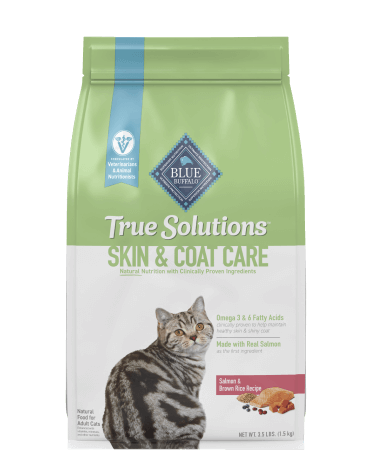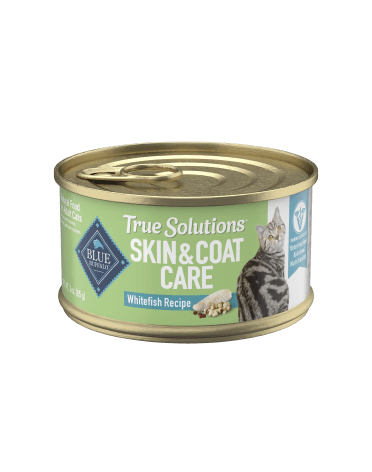Reasons Your Cat has Dry Skin
Skin Issues Caused by a Food Allergy
Studies show food allergies are the third most common type of allergy in cats. Signs that your cat may have a sensitivity to food include excessive scratching that causes hair loss and noticeable skin lesions. Common allergens include corn, wheat, soy, dairy, and eggs.
Feline Environmental Allergies
Your cat may be genetically predisposed to allergens in the environment such as fleas, dust mites, grass or ragweed, especially if she goes outside. Her skin could also be suffering from the winter doldrums — when the air is dry and can cause skin to be flaky.
Bacterial, Fungal, or Viral Infections
Skin disorders and allergies in cats may also be caused by bacterial, fungal, or viral infections. Your veterinarian might recommend taking a skin cytology or skin scraping (diagnostic tools) to determine if your cat has an infection that’s causing her to scratch.
How to Soothe & Treat Your Cat's Itchy Skin
Try an Elimination Diet for your Cat
If your veterinarian suspects a food allergy, they may recommend an elimination diet to identify the source. They might suggest avoiding foods that contain corn, wheat, soy, dairy, or eggs, as those can cause allergic reactions in cats. Alternatively, foods that contain omega-3 & omega-6 fatty acids, such as salmon, can help your cat maintain healthy skin and a shiny coat.
Use Flea Control
If your cat has fleas, try using flea control products. Avoiding the outdoors can also help with reactions to grass and ragweed. And in wintertime, using a cool mist humidifier can help with your cat’s dry skin, just like it does for people. If your cat has an infection, your veterinarian will likely prescribe antibiotics or antifungal drugs.
You always want your cat to be happy and healthy, and if she has dry and itchy skin, the best thing to do is to ask your veterinarian. They will help you figure out the cause and find the best way to heal your cat’s skin and coat.



